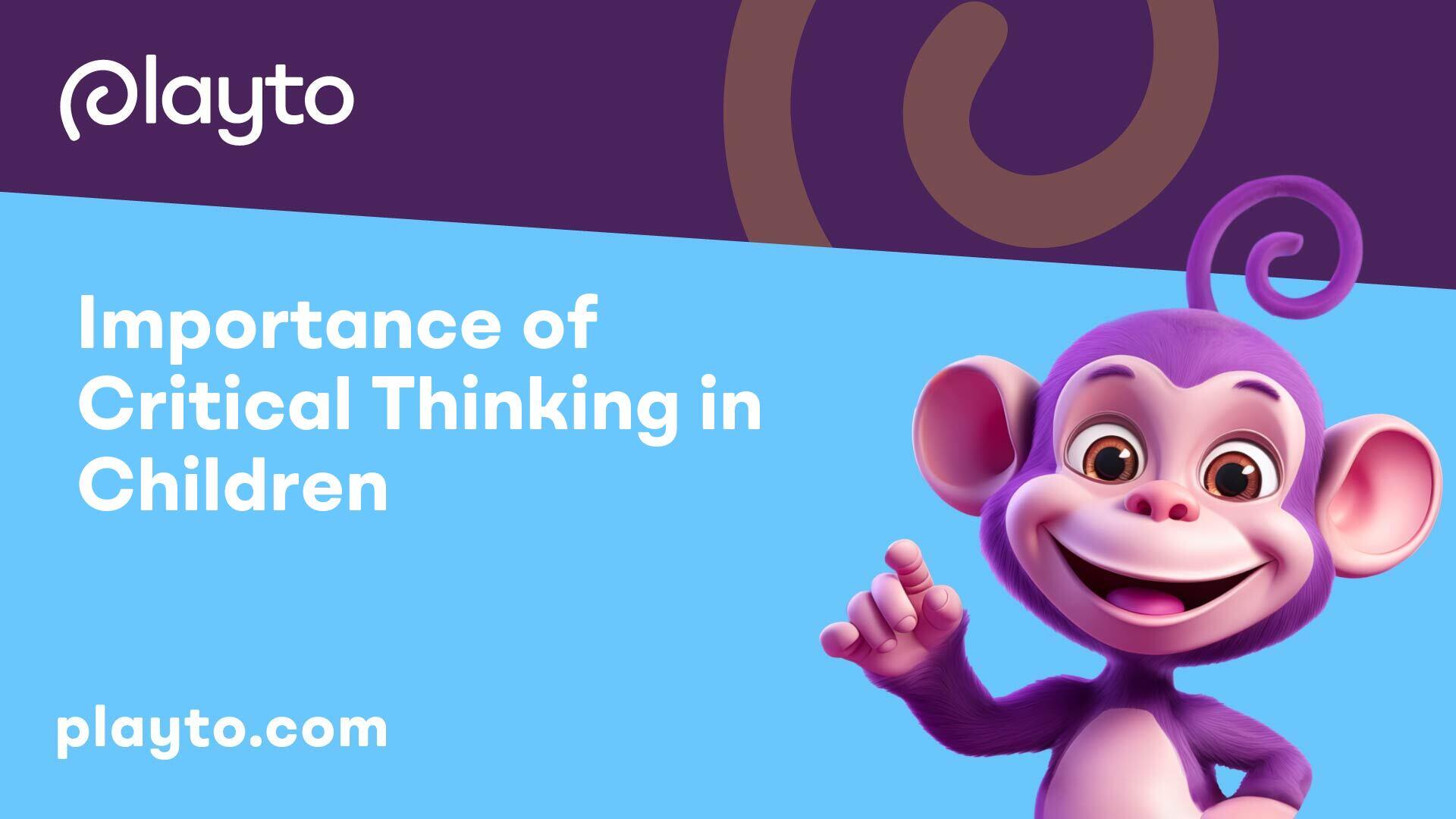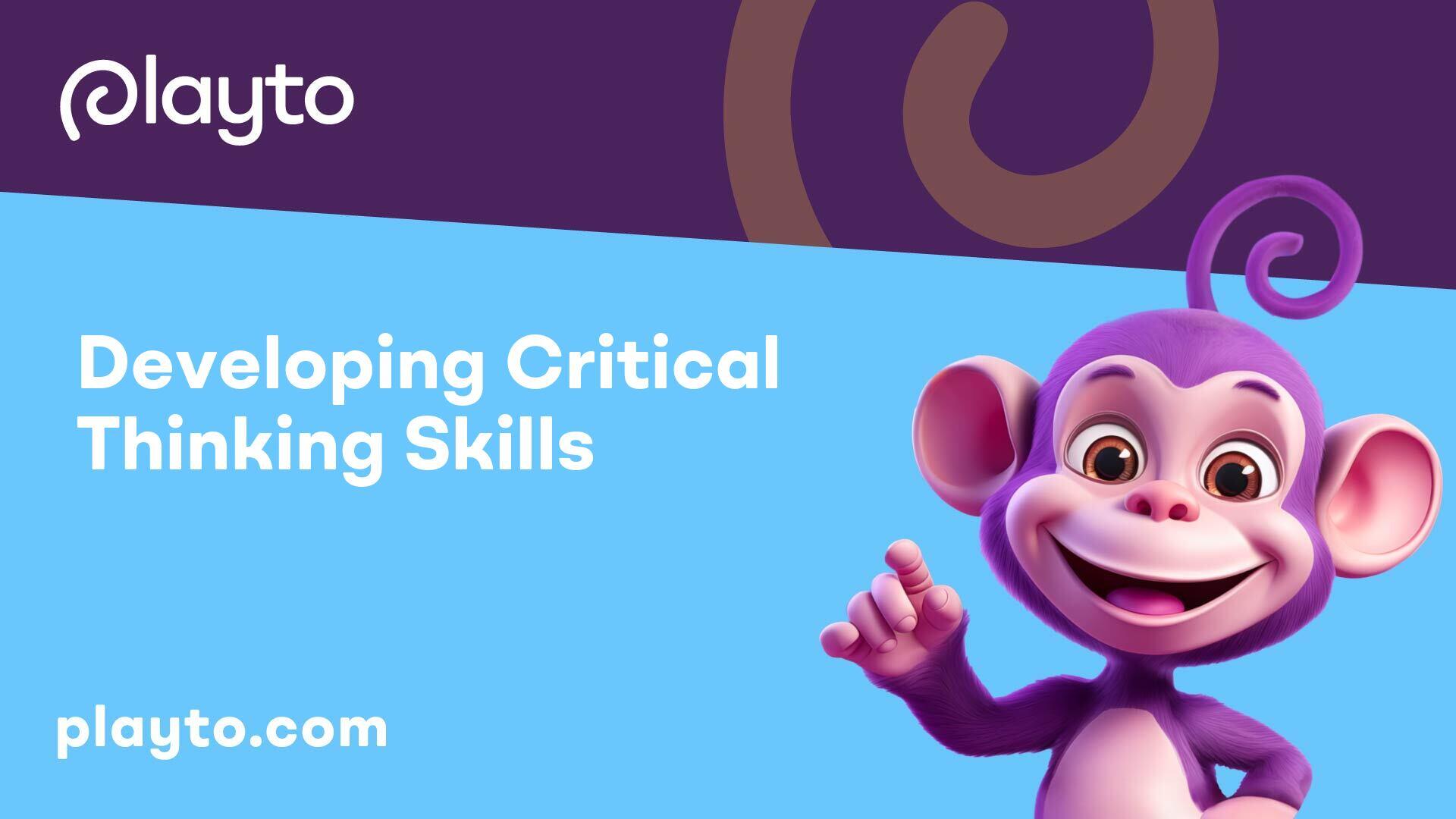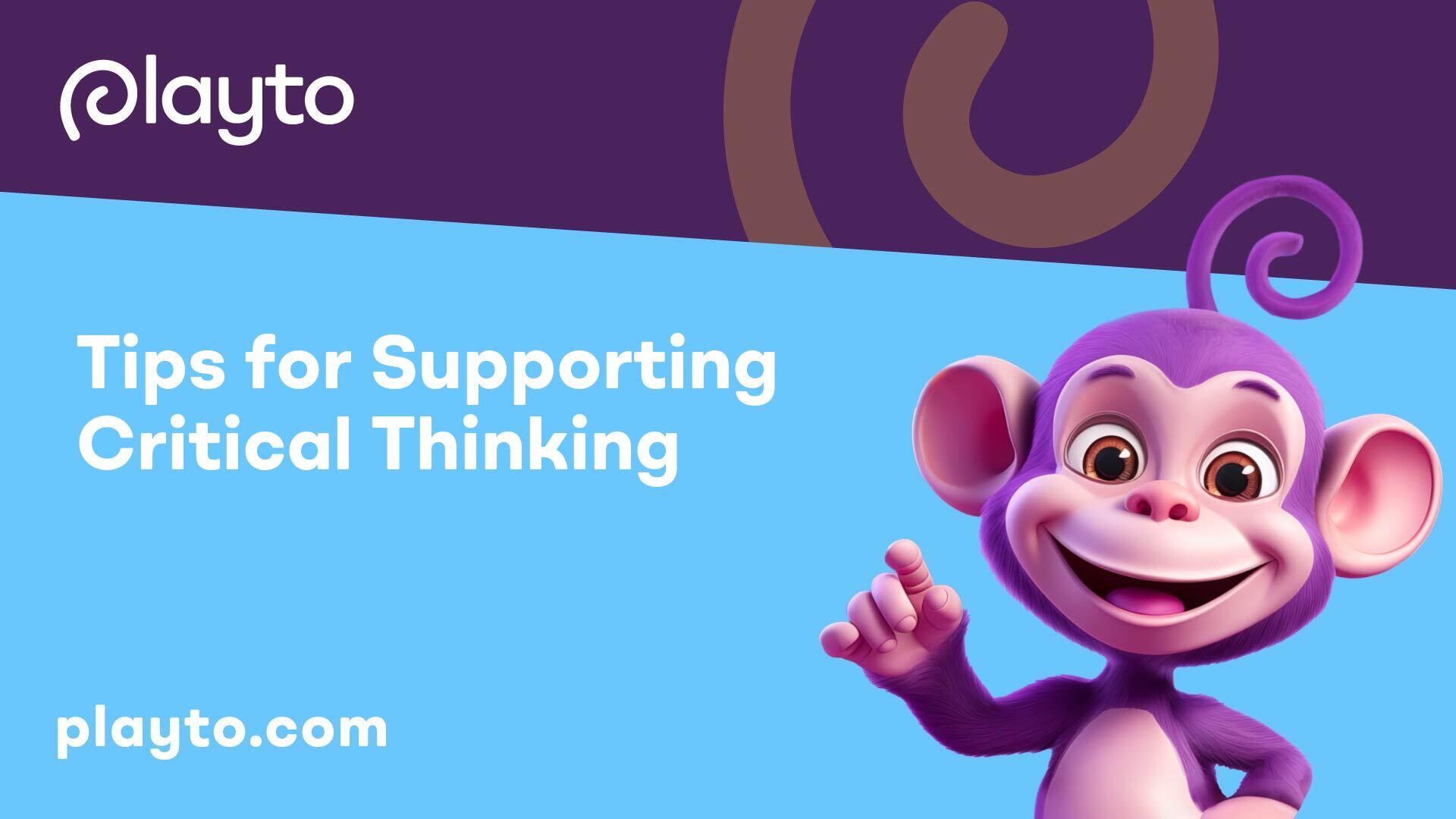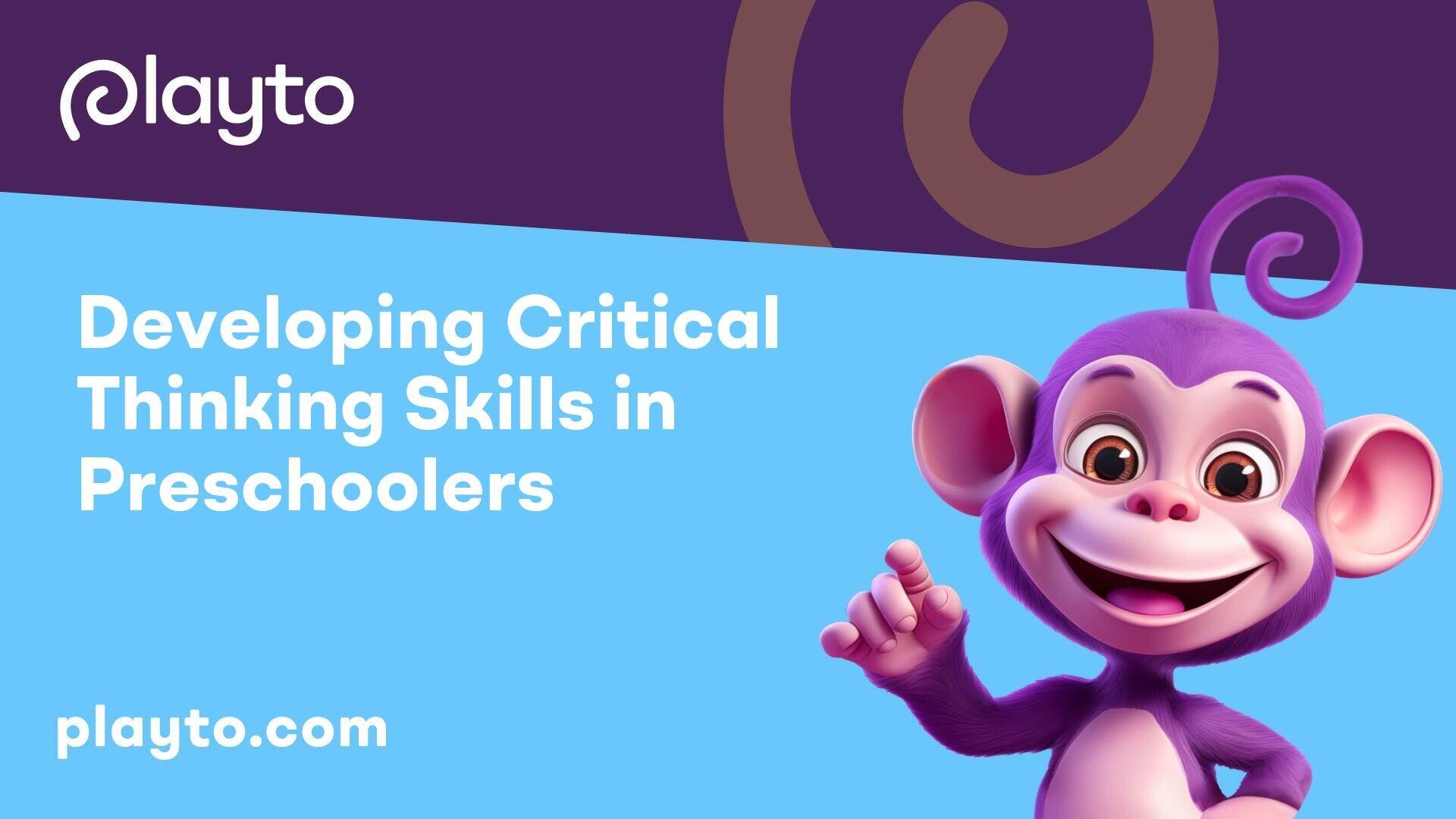
Importance of Critical Thinking in Children
Understanding the significance of fostering critical thinking skills in children is crucial for their overall development. By building a strong foundation in critical thinking, young minds are empowered to analyze information, make informed judgments, and integrate knowledge effectively. This foundation serves as a cornerstone for their cognitive growth and problem-solving abilities throughout life.
Building a Foundation
Author Ellen Galinsky emphasizes the importance of teaching children critical thinking skills, which are built upon a child's natural curiosity, requiring engagement, imagination, and inquisitiveness to analyze and make judgments about information [1]. Starting early in a child's life, providing opportunities for exploration, asking open-ended questions, and encouraging them to think critically about the world around them lays a solid foundation for developing these essential skills.
Engaging Imagination
Engaging children in creative activities that stimulate their imagination is key to nurturing their critical thinking skills. Reading together and asking open-ended questions during reading time can expand preschoolers' imagination while engaging their critical thinking skills. By pausing to discuss stories, exploring alternative outcomes, and encouraging children to express their thoughts, caregivers can foster a deeper level of critical thinking and imaginative problem-solving.
Parents play a significant role in fostering critical thinking skills by creating a supportive learning environment, modeling critical thinking behaviors, and engaging their child in thought-provoking discussions and activities. By providing a nurturing environment that encourages exploration, experimentation, and reflection, parents can instill in their children a passion for learning and a curiosity about the world around them.
Encouraging critical thinking in children from a young age not only enhances their cognitive abilities but also prepares them to navigate complex challenges with confidence and creativity. By fostering a love for learning, exploration, and critical analysis, caregivers can empower children to become lifelong learners and problem solvers who approach the world with curiosity and adaptability.

Developing Critical Thinking Skills
In the realm of developing critical thinking skills in preschoolers, it is essential to focus on honing the abilities that enable children to analyze information, make sound judgments, and integrate knowledge effectively.
Analyzing Information
Encouraging children to analyze information involves prompting them to assess how new information aligns with their existing knowledge or challenges their current beliefs. By engaging in critical thinking, children cultivate a mental library of information as they navigate through various learning experiences. Activities such as reading stories, discussing real-life scenarios, and creating hypotheses lay the foundation for developing critical thinking skills, fostering logical reasoning, and nurturing out-of-the-box thinking. For further insights, consult MSU Extension.
Making Judgments
Supporting preschoolers in making judgments is integral to their critical thinking development. Providing children with opportunities to learn and practice critical thinking empowers them to navigate complexities. Engaging in pretend play scenarios centered around real-world challenges like global issues encourages children to think analytically and develop solutions. This approach prompts them to understand real problems, fostering their ability to actively devise resolutions. To delve deeper, explore suggestions from Michigan State University Extension.
Integrating Knowledge
For preschoolers, the integration of knowledge plays a fundamental role in nurturing critical thinking skills. Engaging children in age-appropriate activities designed to challenge them to solve problems, make decisions, and analyze information lays a robust foundation for their holistic growth and future educational endeavors. By providing opportunities for creative expression, children develop a host of skills such as cognitive abilities, problem-solving techniques, emotional intelligence, and self-expression. Creative outlets are pivotal in shaping a child's overall development, ensuring the enhancement of essential critical thinking competencies. To learn more, refer to insights from Kokotree and Brightwheel.

Tips for Supporting Critical Thinking
Enhancing and fostering critical thinking in preschoolers is crucial for their overall development. To facilitate effective decision-making and problem-solving abilities, Michigan State University Extension provides valuable tips to support the development of critical thinking skills in young children.
Providing Learning Opportunities
One of the most effective ways to nurture critical thinking skills in preschoolers is by creating diverse learning opportunities. Exposing children to a range of experiences, such as puzzles, experiments, and challenges, encourages them to think critically and creatively. By engaging in activities that require them to analyze information and make decisions, children can develop essential cognitive skills that will benefit them throughout their lives.
Fostering Adaptability
Encouraging adaptability in preschoolers is essential for their cognitive growth. By exposing them to new and varied situations, children learn to think flexibly and adjust to different circumstances. This adaptability not only enhances their critical thinking abilities but also helps them develop resilience and confidence in their problem-solving skills.
Encouraging Problem-Solving
Problem-solving is a fundamental aspect of critical thinking, and fostering this skill in preschoolers is key to their intellectual development. Providing children with opportunities to solve puzzles, riddles, and real-life challenges helps them sharpen their analytical abilities and enhances their capacity to think critically. Encouraging children to approach problems from different angles and explore multiple solutions nurtures their creativity and resourcefulness.
By incorporating these strategies into their learning environment, parents and educators can effectively support the development of critical thinking skills in preschoolers, laying a strong foundation for their future academic success and overall cognitive growth. For more insights on the role of parental involvement in daycare and encouraging collaborative play in daycare, check out our related articles.
Strategies for Nurturing Critical Thinking
To support the development of critical thinking skills in preschoolers, it is essential to implement appropriate strategies that challenge young minds and foster cognitive growth. Here are three key strategies for nurturing critical thinking in young children:
Age-Appropriate Challenges
Incorporating age-appropriate challenges into the learning environment is crucial for promoting critical thinking skills in preschoolers. By engaging in activities that encourage children to problem-solve, make decisions, and analyze information, they develop a solid foundation for future academic success and overall cognitive development. Providing challenges that are tailored to their developmental stage enhances their ability to think critically and approach problems with confidence. For more insights on the importance of age-appropriate challenges, visit Kokotree.
Creative Activities
Engaging preschoolers in creative activities and unstructured play not only fosters imagination and self-expression but also nurtures critical thinking skills. Creative play encourages children to think independently, explore new ideas, and develop problem-solving abilities. By participating in activities that stimulate creativity, such as art projects, imaginative play, and hands-on experiments, children enhance their critical thinking skills and cultivate a unique perspective on the world around them. Learn more about the benefits of creative development at Brightwheel.
Collaborating with Educators
Collaboration between parents and educators is vital in creating a supportive environment for the development of critical thinking skills in preschoolers. By working together with childcare providers and teachers, parents can gain valuable insights into their child's progress, receive guidance on promoting critical thinking at home, and reinforce learning outside the classroom. Regular communication, active participation in parent-teacher conferences, and discussions about effective strategies for enhancing critical thinking play a significant role in nurturing a child's cognitive abilities. Explore the importance of collaborating with educators in fostering critical thinking at Kokotree.
By implementing age-appropriate challenges, engaging in creative activities, and collaborating with educators, parents and caregivers can create a conducive environment for preschoolers to develop essential critical thinking skills that will serve them well throughout their academic journey and beyond.
Enhancing Cognitive Abilities
Exploring the realm of developing cognitive abilities in preschoolers is vital during their formative years. Specifically, focusing on the role of early childhood education in fostering critical thinking skills lays a solid foundation for future academic achievements and lifelong success. This critical period provides opportunities for young minds to adapt to diverse situations and creatively solve problems, enhancing their cognitive capacities.
Early Childhood Education
Early childhood education plays a pivotal role in shaping cognitive development in preschoolers. During this phase, children begin to process information, recognize themselves, enhance memory retention, navigate problem-solving scenarios, and evolve their language skills. The surrounding environment significantly influences how children learn to focus on multiple aspects concurrently and think both concretely and hypothetically, impacting their decision-making and ability to engage in complex thought processes [3].
Cognitive Development
The journey of cognitive development in children is instrumental for their growth. Despite varying developmental rates, each child's cognitive progress in the early years is noteworthy. Every moment, their brains embark on forming millions of new neural connections, preparing them for the acquisition of essential life skills such as self-assurance, independence, and social interaction. Nurturing cognitive growth in preschoolers is a fundamental aspect of their learning journey, enabling them to build a strong cognitive foundation essential for their overall development.
By focusing on early childhood education and nurturing cognitive development, caregivers and educators can positively impact a child's cognitive abilities, enhancing their critical thinking skills and preparing them for future academic endeavors. Through a supportive and enriching environment, preschoolers can engage in activities that stimulate their cognitive growth, setting the stage for a lifetime of learning and discovery.
Encouraging Creative Expression
When it comes to nurturing the development of critical thinking skills in preschoolers, encouraging creative expression is essential. Creative activities such as artistic outlets and imagination development play a significant role in fostering critical thinking abilities in young children.
Artistic Outlets
Engaging preschoolers in artistic activities, such as drawing, painting, and sculpting, not only allows them to express themselves creatively but also contributes to the development of critical thinking skills. Through artistic outlets, children explore colors, shapes, and textures, stimulating their imagination and problem-solving abilities. These activities help children think outside the box, fostering creativity and analytical thinking.
Providing children with a variety of art supplies and materials encourages them to experiment and create freely. When children are given the freedom to express themselves through art, they learn to make decisions, solve problems, and think critically about the artistic choices they make.
Imagination Development
Encouraging preschoolers to engage in imaginative play, storytelling, and music/dance activities can greatly contribute to the development of critical thinking skills. Imaginative activities stimulate linguistic growth, refine fine motor skills, and enhance emotional expression, rhythm, and coordination. Play allows children to explore new scenarios, think creatively, and make decisions, all of which are essential components of critical thinking.
Imagination development not only provides an avenue for self-expression but also helps children develop cognitive and problem-solving skills, emotional intelligence, and the ability to think innovatively. Through imaginative play, children learn to navigate different roles, scenarios, and perspectives, honing their critical thinking abilities while having fun.
Incorporating artistic outlets and fostering imagination development in preschoolers not only enhances their creativity but also nurtures their critical thinking skills. By engaging children in activities that promote creative expression, educators and parents can provide young learners with the tools they need to think critically, solve problems, and approach challenges with a creative mindset.
Activities for Critical Thinking
Engaging preschoolers in activities that promote critical thinking skills is essential for their cognitive development. By encouraging them to participate in different types of activities, you can help nurture their problem-solving abilities and creativity. Here are three key activities that foster critical thinking in preschoolers:
Pretend Play
Pretend play is a valuable tool for enhancing critical thinking in young children. By immersing them in imaginative scenarios that mimic real-world challenges such as world hunger or global warming, children are prompted to think creatively and come up with solutions to these complex issues. This not only sparks their imagination but also encourages them to think critically and analytically about potential solutions to real-life problems.
Storytelling and Music
Reading stories and incorporating music into activities can effectively boost critical thinking skills in preschoolers. Engaging in shared reading sessions and asking open-ended questions about the plot can stimulate their imagination and encourage them to think critically about the storyline. Pausing to discuss the story, explore alternative outcomes, and encourage children to predict what might happen next enhances their cognitive abilities and promotes critical thinking [2].
Problem-Solving Games
Introducing children to problem-solving games is a fun and interactive way to develop their critical thinking skills. Activities like solving puzzles, playing board games such as Monopoly or Tic Tac Toe, or working on jigsaw puzzles can help children formulate strategies, understand fundamental game theory principles, and gradually enhance their critical thinking abilities. Additionally, playing with building blocks like LEGOs and encouraging children to create and explore their creativity fosters critical thinking by allowing them to bring their ideas to life and develop problem-solving skills through hands-on activities.
By incorporating these activities into your preschooler's routine, you can provide them with engaging opportunities to enhance their critical thinking skills while having fun and exploring their creativity. Encouraging children to think critically from a young age sets a solid foundation for their future academic success and personal growth.
Parental Involvement in Critical Thinking
Parents play a crucial role in fostering critical thinking skills in preschoolers. By actively engaging in their child's learning process and creating a conducive environment, parents can significantly impact the development of these essential skills. Let's explore two key aspects of parental involvement in nurturing critical thinking: modeling critical thinking and shaping the learning environment.
Model Critical Thinking
Modeling critical thinking behaviors is a fundamental way for parents to instill these skills in their children. When faced with situations that require decision-making, parents can verbalize their thinking process and explain how they organize their thoughts. By demonstrating the process of analyzing information, making judgments, and integrating knowledge, parents provide valuable insights for children to observe and learn from.
When parents involve children in discussions that require reasoning and problem-solving, they encourage the development of critical thinking skills. Through thought-provoking conversations and activities, children learn to think critically and approach challenges with a strategic mindset. Modeling critical thinking not only enhances cognitive abilities but also promotes independence in decision-making and problem-solving.
Learning Environment
Creating a supportive learning environment at home is essential for nurturing critical thinking skills in preschoolers. Parents can design spaces that stimulate curiosity and exploration, fostering a love for learning. By offering a variety of educational materials, such as books, puzzles, and creative tools, parents provide opportunities for children to engage in activities that promote critical thinking [6].
Moreover, parents can encourage their child's independence in problem-solving by allowing them the time and space to navigate challenges on their own. By fostering a culture of experimentation and resilience, children build confidence in their abilities to solve problems creatively and critically. A learning environment that embraces mistakes as part of the learning process cultivates a growth mindset and nurtures the development of critical thinking skills.
By actively modeling critical thinking behaviors and creating a stimulating learning environment, parents play a vital role in shaping their child's cognitive development. Through collaborative efforts with educators and childcare providers, parents can further support their child's critical thinking journey, ensuring a holistic approach to fostering these essential skills in preschoolers [2].
